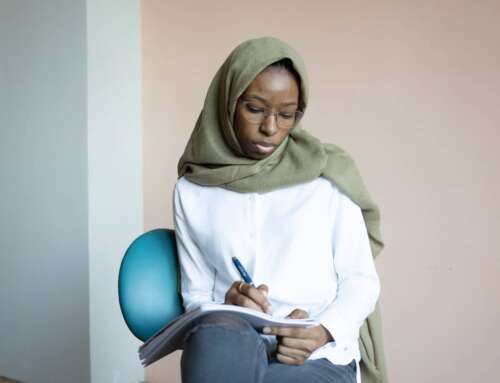Can you articulate what sexual rights are? Many sex positive individuals say they stand for sexual rights without being able to explain what they are and why they’re important.
As advocates for sexual empowerment and sex education, we need to deeply understand the concept of these rights and empower ourselves and others to claim and respect those rights.
Sexual rights are human rights.

Photo by Nqobile Vundla on Unsplash
Sexual rights are essentially the concept of human rights as applied directly to sexuality and reproduction. So, let’s first consider what human rights are.
Human rights are moral principles that create standards of human behavior and are protected in both municipal and international law. They’re understood to be “inalienable,” which means they cannot be surrendered or taken away and are inherent in all human beings regardless of nation, language, religion, sexual orientation, ethnic origin, or any other status you can think of!
In 1997, the World Congress of Sexology, organized by the World Association for Sexual Health (WAS), issued The Declaration of Sexual Rights. It was later revised in 2014, and includes the right to autonomy and bodily integrity, the right to be free from all forms of violence and coercion, the right to comprehensive sexuality education, and the right to participate in any type of equitable, consensual relationship. It’s important for you to be familiar with ALL 16 rights enshrined in this declaration, so please review them through the link above.
Protecting sexual rights is a critical mission of sex positive organizations
Unfortunately, there is still debate in the “sex positive” community on exactly how to define sexual rights.
The International Women’s Health Coalition (IWHC), for example, has come to a working definition of sexual rights as follows:
“Sexual rights embrace certain human rights that are already recognized in national laws, international human rights documents, and other consensus documents. They rest on the recognition that all individuals have the right—free of coercion, violence, and discrimination of any kind—to the highest attainable standard of sexual health; to pursue a satisfying, safe, and pleasurable sexual life; to have control over and decide freely, and with due regard for the rights of others, on matters related to their sexuality, reproduction, sexual orientation, bodily integrity, choice of partner, and gender identity; and to the services, education, and information, including comprehensive sexuality education, necessary to do so.”
The World Health Organization has their own working definition that links these rights and existing human rights and emphasizes the part that this connection plays in fully realizing sexual health.
The World Association of Sex Coaches (WASC) boils it down to a succinct statement in their Ethics and Standards: “Sexual rights are human rights; all adult sexual expression is acceptable, as long as it is with consent and without intentional harm.” WASC also upholds the ethical standards and sexual rights statements of various other organizations that advocate for sexual rights, sexual wellness, and sexual freedom.
Regardless of the differences, it’s clear that the desire to protect and inform individuals of a specific set of human rights directly applied to human sexuality is integral to sex positive organizations.
So, what does this all mean for sex positive advocates?

Photo by Angelina Litvin on Unsplash
We all have diverse sexual histories that influence our concept of sexual rights in ways that might be negative. With a firm grasp on these rights and how they connect to our inalienable rights as human beings, we can empower ourselves and others by ensuring we all realize these rights cannot be taken away.
At Sex Coach U, we teach students how to use the MEBES® Wheel, a model designed by our founder and pioneer of the field, Dr. Patti Britton. The elements of the MEBES® Wheel are Mind, Emotion, Body, Energy, and Spirit. This model is a fantastic way for professionals to address the wide array of sexual concerns people have, and it can even be used as a valuable self-coaching tool.
Here are a few examples of potential sexual rights violations that may occur and how they fall within the realm of the MEBES® model.
- M (mind): You may not have received accurate or comprehensive sexual education and will have to seek out alternative ways to get accurate information on sexual function.
- B (body): You may be experiencing coercion related to your bodily autonomy.
- E (emotion): You may feel unable to authentically express yourself sexually and feel alienated within your community.
When examining your own sexuality and any concerns related to it, the MEBES® model is an invaluable tool that can help you reframe your thoughts for the better. It can help set you up for success if you decide to seek out the services of a sex coach, therapist, educator, or other sex-positive professional.
For those of us who are sex-positive professionals, these might seem like obvious things for a coach to bring out during an assessment. However, it is with the support of sexual rights that we can give our clients the tools to strengthen whichever particular aspect is in need. This empowers them to more fully realize their action plan.
Whether you are a practicing or aspiring sex coach another type of sexuality professional, or a general advocate for healthy sexuality, it is a good idea to brush up on your understanding of sexual rights. By staying current with the most up to date definitions, we can empower more people in our communities to stand up for themselves by reclaiming and maintaining these inherent rights that can never be taken away.
Continue the Conversation
Curious about training to become a Certified Sex Coach™? Join the next live Info Session to meet the SCU team and participate in a live Q&A!





